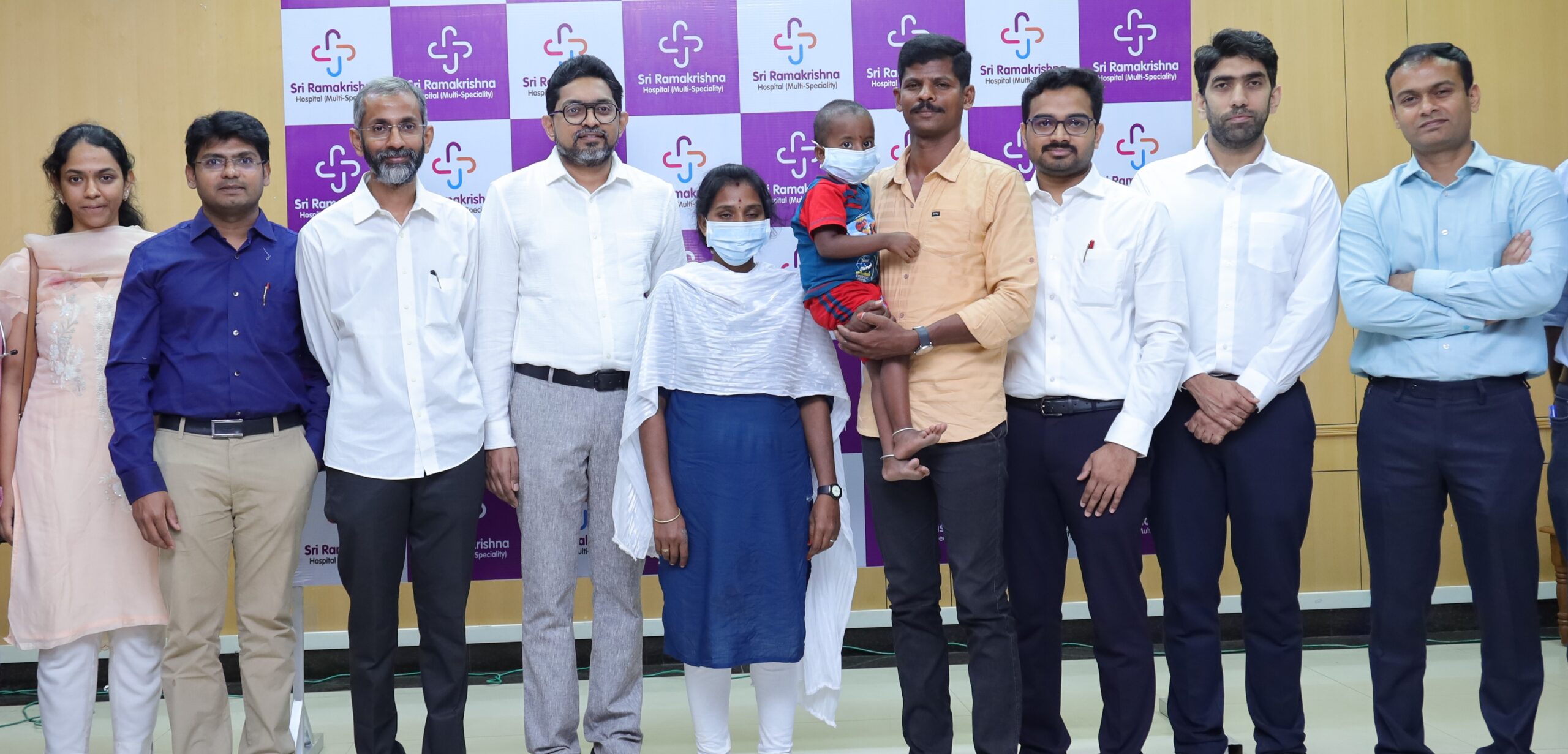Trending Now
- 830 voters names go missing in Kavundampalayam constituency
- If BJP comes to power we shall consider bringing back electoral bonds: Nirmala Sitaraman
- Monitoring at check posts between Kerala and TN intensified as bird flu gets virulent in Kerala
Coimbatore
Alagappa University’s achievements spotlighted at global conference
![]() November 11, 2019
November 11, 2019
The achievements of Alagappa University over the years and its initiatives to acquire a global presence were outlined at a two-day international conference in Karaikudi.
Organised by the Department of Botany of the university, the inaugural function of the conference titled, ‘Innovative and Emerging Trends in Botany’ (ICIETB – 2019), was held on November 6 at the Seminar Hall of the Science Campus under the auspices of RUSA 2.0 Scheme.
Presiding over the inaugural function, Prof. N. Rajendran, Vice-Chancellor, Alagappa University, enumerated the of Alagappa University over the years and how the institution is progressively striving to expand its global presence.
He said the university obtained the second highest CGPA score at the national level in NAAC Accreditation, Category-I Status by UGC-MHRD. It secured the NIRF: 28th rank and QS India: 24th rank.
These achievements have placed Alagappa University among the top 10 institutions of India. It was granted a sum of Rs. 100 crore by MHRD-RUSA for expansive infrastructure development and also for pursuing qualitative teaching and research performance.
He appreciated the faculty of Alagappa University for their substantial contribution towards nurturing education and research with the cooperation of students and research scholars.
He said the university h-index has risen to 73. The UGC has made it mandatory to publish articles in SCI and WOS indexed journals and it is mandatory for PhD scholars receiving fellowship from RUSA 2.0 grant.
Although an amount of Rs. 27 crore has been equally distributed among the departments of Alagappa University, the best performing departments such as the Bioinformatics has been recognised as the ‘Flagship Department’ by MHRD-RUSA, Biotechnology and Physical Sciences, and have been allotted more grants under theme-based projects.
He further said that under MHRD-RUSA 2.0 scheme, financial assistance is provided to 182 research scholars and 35 post-doctoral fellows. He also added that, the Department of Botany plays a dual role. It propagates environmental cleanliness and hygiene among the rural people in 91 villages adopted by the university departments. He said the department’s initiatives has paved the way for Alagappa University to bag the Swachtha 4th ranking at the national level.
He said that this conference will provide the best opportunity for interaction with participants from the plant science societies, horticulture, forestry, agriculture, agronomy and plant sciences academicians.
It will empower participants to launch new applications to explore new trends in the field of botany. He concluded by asking the participants to make use of the opportunity to learn from the subject experts gathered here for deliberations in the conference.
Prof. J. Jeyakanthan, Head (i/c), Department of Botany, in his thematic address, briefly enumerated the progress made by the department since its inception and thanked the Vice-Chancellor for providing equal share of funds for equal growth of Departments.
He highlighted the crucial role of plant sciences in the era of climate change and how this conference on has provided a platform to discuss the global needs and to learn about advanced research and developments in every field of plant sciences.
He also added that the blind dependence on synthetic drugs is over now and people are returning to the natural herbal drugs with great hopes of safety and security. It is time to promote herbal drugs globally, and the outcome of the conference will pave the way to develop novel plant-based drug molecules and will raise hopes among the victims of all diseases worldwide.
Citing statistics, he said that the global market for botanical and plant-derived drugs will grow from $29.4 billion in 2017 to around $39.6 billion by 2022 with a compound annual growth rate (CAGR) of 6.1 per cent for the period of 2017-2022.
Plant-derived drugs as a segment will grow from $29.3 billion in 2017 to around $39.2 billion by 2022 with a CAGR of 5.9 per cent for the period of 2017-2022. Botanical drugs as a segment will grow from $57.0 million in 2017 to $425 million by 2022 with a CAGR of 49.5 per cent for the period of 2017-2022.
He concluded his speech with the hope that this conference will be productive and satisfying to the participants, academicians and scientists.
Prof. Mui-Yun Wong, Head, Laboratory of Science & Technology, Institute of Plantation Studies, Universiti Putra Malaysia, Malaysia, in her special address, gave a general overview of various cutting edge innovations and emerging trends in plant biology and the feasibility to curb plant pathology.
She shared her knowledge on the dual prospects of the compounds/herbs identified from plant sources to deplete infestation in crops by plant pathogens as well as to protect the human kind from life-threatening diseases.
She said that in order to meet the demand for high yield, increase of fibre rich foods, resistant crops from abiotic stress from the growing population, which is expected to reach 9 billion, cutting edge technologies such as genome editing techniques, CRISPR, CASP, RNAi which facilitate to transform plants with high commercial importance, must be employed. She also revealed that small RNA molecules identified can aid in curbing plant associated pathogenesis.
Furthermore, she urged the audience that innovations should be focused on crop protection through technologies developed by agro-based companies, sustaining agriculture with active ingredients identified from plant sources and other biological, RNAi’s which can aid in crop protection and has a potential impact on horticulture like producing different flower colours through gene silencing.
She later introduced a term “Phytobiome” which is the interaction study of plants with microbiome and environment and its sustainability.
Dr. Ganesan Vadamalai, Head, Department of Plant Protection, Universiti Putra Malaysia, Malaysia, in his keynote address, highlighted the importance of agriculture progression through cutting edge technologies, negative footprints leading to bad human health conditions.
He also said how with the rising population, farmers need to meet the challenges of feed sustainability for which the agriculture production need to be increased by 60 per cent in line with the population growth that is estimated to hit 9.5 billion by 2050.
The inclusion of digital technology for the enhancement of agriculture and rural life is a must and the digitalisation is mandatory in all interdisciplinary sciences to meet requirements.
He also said that till date 120 compounds were extracted from plant sources and are used in medicinal chemistry and the creation of designer plants to curb pathogens and infestations.
Till date, only 30 per cent of plant resources have been explored by agriculture and industry that requires further exploration through gene editing tools such as CRISPR, CASP, NGS, Phenotyping to enhance the plant productivity and performance, he said.
He suggested that data management and maintenance is very much essential to increase the plant genetic blueprint through effective research, creation of customised compounds catalogue, bio-pesticide, transparency in data sharing for which university and educational institutions are the source to move forward.
He revealed that it takes approximately 20 years to apply product from agriculture which requires an innovative smart plan. Finally, he urged the audience to make use of the deliberations and the new innovations introduced in the conference for their research work.
Prof. N. Mathivanan, Head, Director, Centre for Advanced Studies in Botany, University of Madras, Chennai, delivered the felicitation address.
In his speech, he appreciated the Vice-Chancellor for the rapid progress the university has made and congratulated the Organizing Secretary for having successfully organised the international conference.
He urged the Head of the Department to keep pace with developments and work harder towards promoting botany and herbal science at a global level. He also encouraged young researchers to find novel leads for their future work and aid in commercialisation of traditional knowledge on par with China.
Fourteen eminent scientists from various prestigious institutions delivered lectures on various innovative technologies that could play a major role in developing drugs for the human kind and plant pathology. Participants numbering 180 from across the country, including faculty members and research scholars took part in the event.
Dr. M. Jyothi Basu, Organising Secretary of ICIETB-2019, welcomed the gathering and highlighted several issues confronting India and the immediate need to find solutions using herbal sources.
The vote of thanks was proposed by Dr. A. Arumugam, Co-convenor of ICIETB-2019.























